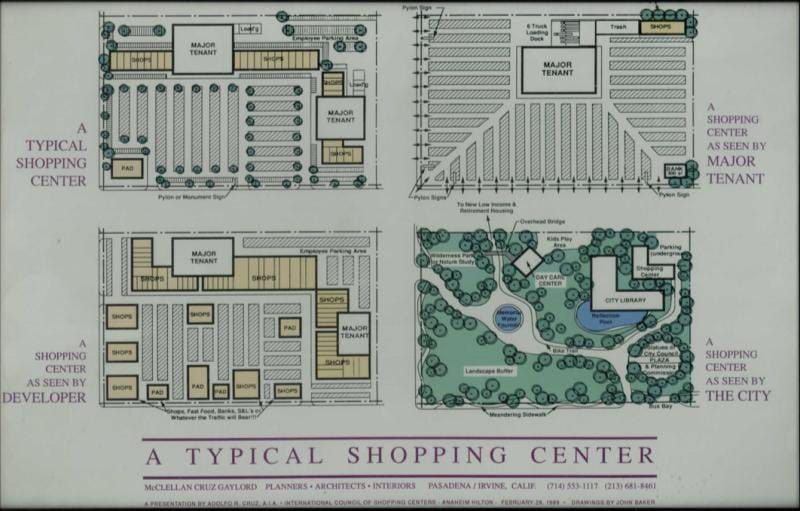We can complain because rose bushes have thorns, or rejoice because thorns have roses.
Alphonse Karr
In 2006, with the real estate market at peak froth, one of the best corners in the Southeast came to market - a location real estateurs pine over, oozing potentiality, at the corner of rich and commerce. The type of property that, properly developed, could define a city.
Our reaction to the offering was immediate and workmanlike. We would own it, we decided, no matter what it took, and buckled down to make it happen. Overpaying would be impossible. We already had tenants in tow - global luxury brands unbothered by rent - and the property’s geometry, zoning, and access made stacking it tall with hotels, offices, and condos possible.
Within days we prepared an offer - a clean one - with a short closing and a fat price. Then we re-wrote it, making it cleaner, with a shorter closing period and a fatter price. Then, for good measure and to be certain we got the property, we re-wrote it with an astonishing price and submitted the offer.
A few days went by and surprised we hadn’t heard anything, called the broker who let us know the seller wouldn’t be countering.
Excellent, I thought, wondering if we’d been too aggressive and could’ve gotten it a bit cheaper.
Then I learned the seller wouldn’t be countering because our price was far shy of the leading pack of bidders.
Perspective.
Still mourning our loss, we received a call from the winning bidder, a developer wondering if we’d like to partner with their team. They had all the capital raised but wanted us to bring our retailer relationships. I asked what price they had agreed to and spit out my coffee when I heard the answer.
We held our nose making our bid, using every justification we could think of to pay more and then adding a bit more on top of that, then adding a lot more on top of that. Their winning bid was twice ours.
Perspective.
Their justification was that the property - in addition to being a terrific corner - was a lynchpin to an even larger potential assemblage. This was explained to me while sitting in the developer’s office looking at a large aerial photo: “it’s not just this corner, it’s ALL this”. He explained, with a sweeping hand gesture.
Perspective.
The idea that all the adjoining property - seven acres of developed urban land split between 32 owners - could be acquired at anything approaching an unridiculous price was ridiculous.
But they had the capital arranged from a hyper-rich European family office. What the hell, we thought, for us it was like a call option on the project’s success - none of our money, time, or reputation was required. And if they got it put together we’d own a sliver of something tremendous.
Perspective.
Our partnership would go live once the assemblage was complete and up until that point we would observe from the sidelines, cheering them on.
The deal was set up where the Europeans funded an account controlled by the developer, structured as a line of credit that could be used to acquire ALL the necessary properties. It was essential to have all the money on hand, the developer said, so he could move quick and keep things quiet so as to avoid holdouts.
“You don’t want to know how the sausage is made”, he said.
Perspective.
A month or so after the assemblage project began, I was asked to join a status update meeting where the developer would update us, and more importantly the Europeans, on progress.
We met in a private room at the fancy hotel where the head of the European’s family office, a stern fellow with rimless eyeglasses was staying. After a pleasant breakfast the developer cleared the table enough to unroll a large aerial photo with each of the target parcels identified.
“We have some good news and bad news”, he said.
“It was a long flight” the European responded, “let’s hear the good news”.
The developer, an excitable type, jumped in with vigor, and explained parcel by parcel, in grand detail, where he stood with each negotiation - adding funny or insightful anecdata throughout the story.
He’d been through quite the journey, negotiating with single condo dwellers, small business owners, and sophisticated real estateurs. Each transaction a skirmish on the way to a larger victory. He’d already bought 18 of the 32 parcels, a little over half the land.
“This is good news”, the European said, in a clipped accent. “What’s the bad news?”
A pause, and then: “I’ve spent all the money.”
Perspective.
If you’re reading this, you’re probably interested in real estate.
If you’re interested in creating wonderful places, and how those places can increase surrounding real estate values, consider joining the Tacos & Patios Workshop - a free online gathering where we unpack the how and why behind unique mixed-use developments.
Join now and get a recording of the last meeting, a workshop with Casey Lynch, CEO of Roundhouse, one of our country’s most talented multifamily developers, where we discuss how a singular pizza shop changed the trajectory of his company.
And if you’re interested in a deep dive, apply to join AUTOMATIC where we bring together real estate developers interested in making wonderful places and the innovative retail & hospitality brands, designers, contractors, and capital providers that bring those places to life.
**follow along on LinkedIn , Twitter (X) or Instagram








These are always so great! Excellent writing!
Great story and insight into what happens to the party that wins a bid, they don't always win enough to finish the project